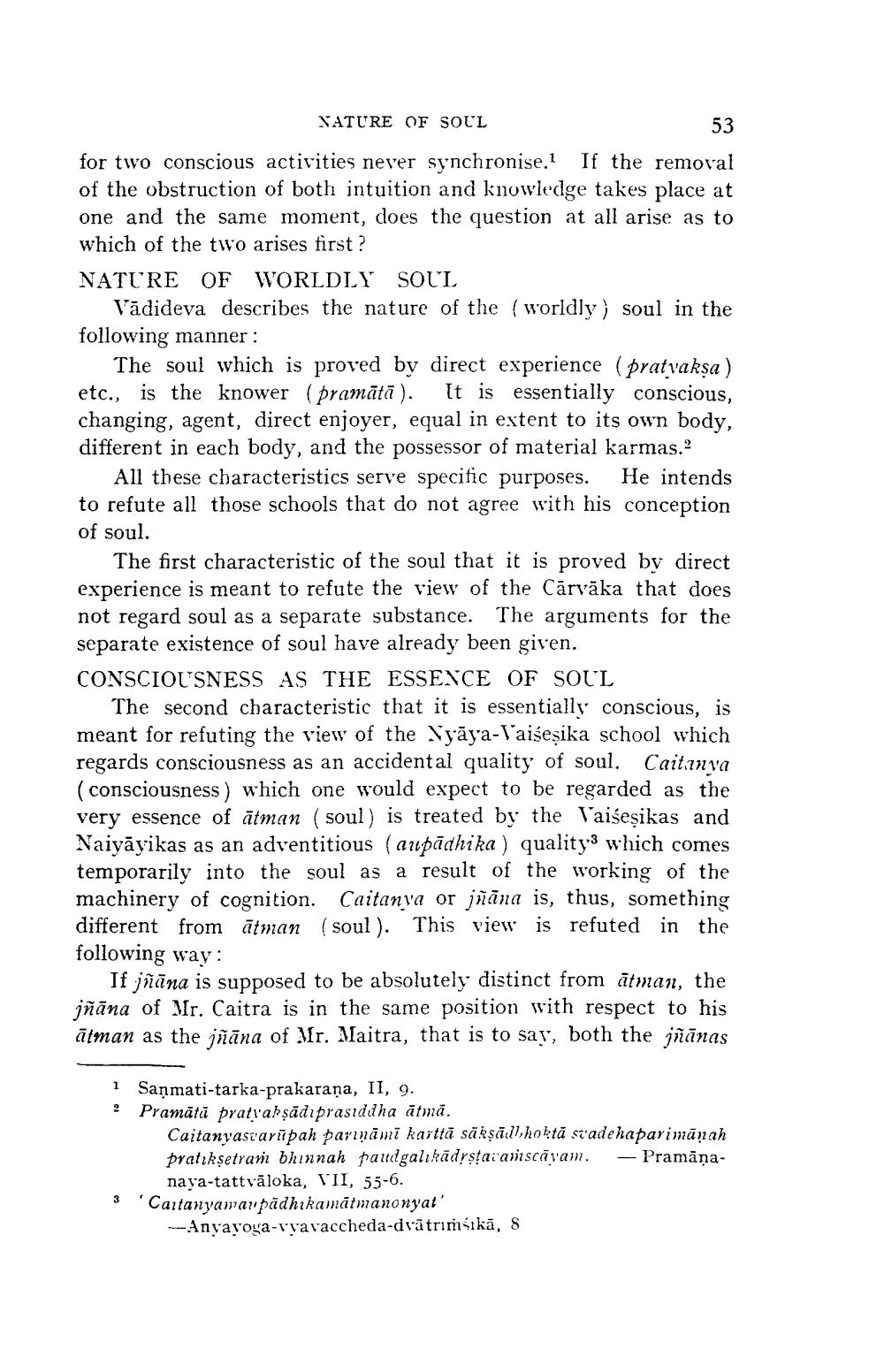________________
XATURE OF SOUL
53
for two conscious activities never synchronise. If the removal of the obstruction of both intuition and knowledge takes place at one and the same moment, does the question at all arise as to which of the two arises first? NATURE OF WORLDLY SOUL
Vādideva describes the nature of the (worldly) soul in the following manner :
The soul which is proved by direct experience (pratvaksa) etc., is the knower (pramātā). It is essentially conscious, changing, agent, direct enjoyer, equal in extent to its own body. different in each body, and the possessor of material karmas.?
All these characteristics serve specific purposes. He intends to refute all those schools that do not agree with his conception of soul.
The first characteristic of the soul that it is proved by direct experience is meant to refute the view of the Cārvāka that does not regard soul as a separate substance. The arguments for the separate existence of soul have already been given. CONSCIOUSNESS AS THE ESSENCE OF SOUL
The second characteristic that it is essentially conscious, is meant for refuting the view of the Vyāya-Vaiseșika school which regards consciousness as an accidental quality of soul. Caitinva (consciousness) which one would expect to be regarded as the very essence of ātman (soul) is treated by the Vaisesikas and Naiyāvikas as an adventitious (aupādhika) quality3 which comes temporarily into the soul as a result of the working of the machinery of cognition. Caitanya or jñāna is, thus, something different from ātman (soul). This view is refuted in the following way:
If jñāna is supposed to be absolutely distinct from ātman, the jñāna of Mr. Caitra is in the same position with respect to his ātman as the jñāna of Mr. Maitra, that is to say, both the jñīnas
i Sanmati-tarka-prakarana, II, 9. 2 Pramātā pratraksādiprasiddha ātā.
Caitanyasvarūpah parāmi kartta säkşául, hoktă stade haparimānah pratıkşetrar bhinnah paudgalıkādrstacariscāvam. - Pramāna
naya-tattvāloka, VII, 55-6. * Caitanyawarpādhikamātmanonyat'
-Anva voya-vvavaccheda-dvātrimsıkā, S




